GENDER
CAREER BUILDING
TRAINING
FOR WOMEN
Believe in Your Abilities. Look to the Future
In sewing factories in Bangladesh that are essential UNIQLO partners, women make up approximately 80% of workers. Historically, women in Bangladesh have faced significant challenges to advance their careers, and the percentage of women in senior positions decreases the higher up the ladder you look. In 2019, the Fast Retailing Group, together with UN Women, our partner at the time, developed special training for female workers working at our partner factories. Then, in 2020, we ran a pilot project that proved to be very successful, leading to a steady increase in the number of women in management positions. We later introduced the pilot as an official program. This has been operating since 2021, and continues to support the career development of women who aspire to be in management roles. By the end of August 2022, 163 women had become managers at seven factories. Looking ahead, we will continue to support women in Bangladesh so that they can achieve their dreams.
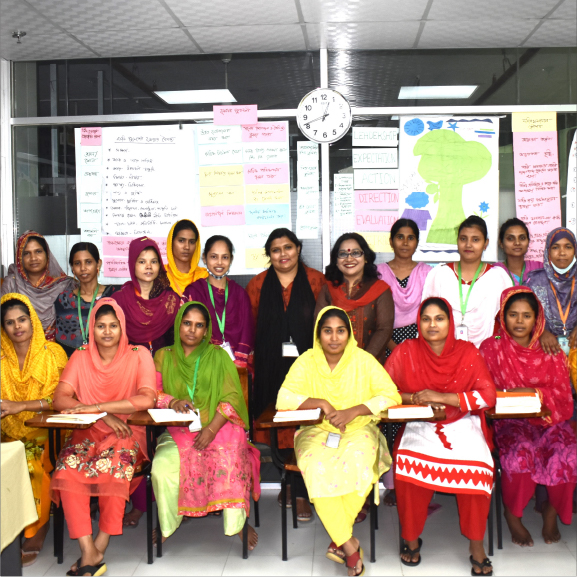
Training programs
- Soft skills training: 11 days (40 to 60 participants per factory) Training for female workers of factories during which they gain the leadership skills and confidence needed for supervisory and other management roles.
- Technical skills training: 15 days (about 50% of soft skills training participants, or 20 to 30 per factory, have participated.) Training on the skills required to handle production line management.
- Management Awareness Training: One day (20 to 30 employees per factory) Training for management in the HR department, Industrial Engineering department, and other related departments to promote an understanding of the environment needed to enable and support women to progress in their careers.
2025 Targets
-
In the future, we would like to further expand the scope of our efforts to support women in Bangladesh. In addition to deploying training to more factories, we will also address issues that women workers face in their daily lives, such as balancing childcare and work and maintaining good health.
To promote the initiative, we have set the following three targets to be achieved by the end of 2025 at partner factories in Bangladesh: - 1500 workers are trained to become supervisors On average, at least 30% of supervisory roles in the production departments of our Bangladesh factories are held by women All female employees in our partner factories have increased access to: childcare facilities and services; physical and mental wellbeing support; and safe transportation to and from the workplace.
Eliminate stereotypes and build confidence in women workers

Ambia Akter
Supervisor

Ambia Akter
Supervisor
“The greatest thing I have acquired in this training is confidence,” said Akter, who works at Green Textile’s sewing factory. After attending the training, she was promoted to supervisor and now oversees a line with 30 machines. At 8am each day, she confirms the sewing line does not have any problems, reviews reports, checks the attendance of members, and sets the goals for the day. “I feel satisfied with my work when I consider how I can cooperate with all of my team members to achieve our goals,” Akter said. Akter has been with the company, starting out as a sewing machine operator. In 2021, she attended Women’s Empowerment training, introduced by Fast Retailing and UN Women, where she learned about leadership and communication. Through the training, Akter realized she had been under the misconception that “women are incapable of taking up managerial positions,” and then shifted her mindset to believe she is capable. This also affected her surroundings. “Most supervisors used to be men. At first, I was told women were incapable of being supervisors, but when I showed my achievements, male employees changed their attitudes.” Since then, there have been some female workers who wish to be promoted to supervisors like Akter. “In Bangladesh, the idea is still prevalent that women are less capable both at work and at home. But if we are offered an appropriate and supportive environment where we can make our best efforts, women can be promoted to leadership positions and boost their careers. We ourselves have to change our own mindset that we cannot do something just because we are women,” she said. After her promotion, Akter receives a stable income that is enough to support her parents’ household, and she is confident she can further improve her life through her own volition. “Now I can believe I am capable of doing things which I had never dreamed of achieving when I started working. My next aim is to move up in my career to become a production manager.” Embracing her newfound self-confidence, Akter continues to challenge herself and tries to achieve new things.
Interviews with Three Female Participants.
What’s Your Dream?
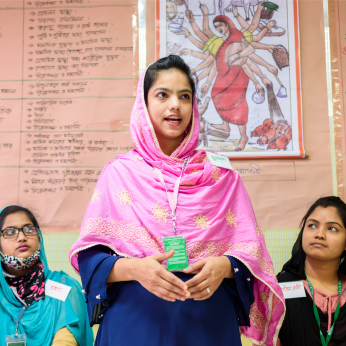
Sultana Afrin
Junior operator
“I have decided that I want to work in a more challenging position,” says Sultana Afrin, who works at a garment factory based in the Dhaka capital. Sultana was part of a group of 50 women who participated in training sessions that focused on leadership, negotiation, and communication skills. “Earlier I used to think that work that involved going out was “men’s work.” I don’t feel like that anymore,” says Sultana who feels that, armed with her new communication skills, she is now able to clearly convey her own ideas not only at work, but also at home.
“I don’t want to dream big and then not reach my goal. I believe in small steps, baby steps.” Sultana wants to become a floor manager and is currently happily working towards that goal.
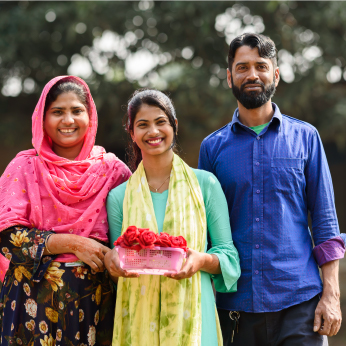
Hashi Begum
Junior operator
“I want my daughter to grow up to be a doctor. That is my dream,” says Hashi Begum, who used to think that a woman’s place was in the home. However, the construction of a sewing factory near her home completely changed her values.
“Earlier I used to feel scared to express myself, to do anything new. Now I feel that men and women can both do anything and everything.”
Hashi says she is proud that both she and her husband work and bring up their kids together and was adamant that, “if all female employees can enjoy the training I have received, then the factory atmosphere and working environment would improve, and women would be able to stand up for their rights and secure a better future.”
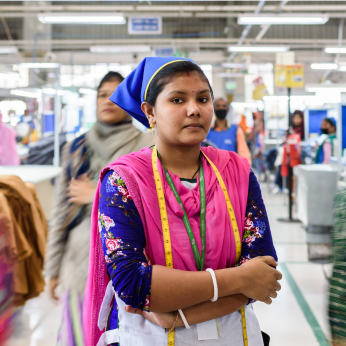
Pryanka Rani Saha
Quality control officer
“I learned about stress management and got several tips on how to be able to complete your work properly, whatever the circumstances,” said Pryanka Rani Saha, who joined a garment factory in Mymensingh Division four years ago. There, she met a man, fell in love, and decided to get married. The couple now live busy lives in which they efficiently share the housework and respect each other’s goals. This is an extremely progressive approach in traditional Bangladesh. Pryanka dreams that Bangladesh will one day become a model country for the world. “I want Bangladesh to be a safe and free country where it is OK for women to walk alone at night,” says Pryanka, who is keen to communicate openly with her partner and parents. Women who cherish new values are certainly trying to change the way things have been in this country.
Most Viewed Contents
-

PEACE FOR ALL
A SINGLE T-SHIRT HAS THE POWER TO SPREAD PEACE. “It’s time for action, in the name of world peace.” Major figures who share this vision with...
Read More
-

RE.UNIQLO STUDIO
Your UNIQLO clothes have a long life ahead of them. We're creating something positive for the future by keeping UNIQLO items in circulation....
Read More
-

UNIQLO DOWN RECYCLE
Recycling clothes into clothes, UNIQLO’s latest challenge that opens up new links between people, clothing, and the global environment. We are...
Read More
-

UNIQLO PRE-OWNED CLOTHES PROJECT by RE.UNIQLO
Once you’ve made the most of your clothes, it’s time to recycle. RE.UNIQLO is working towards a circular society by selling pre-owned clothes.....
Read More
Recommended Contents
-

RE.UNIQLO
Can your old clothing improve the future? Yes! At UNIQLO, we recycle your used garments through our circular sustainability programs. Take our recycled down ini...
Read More
-
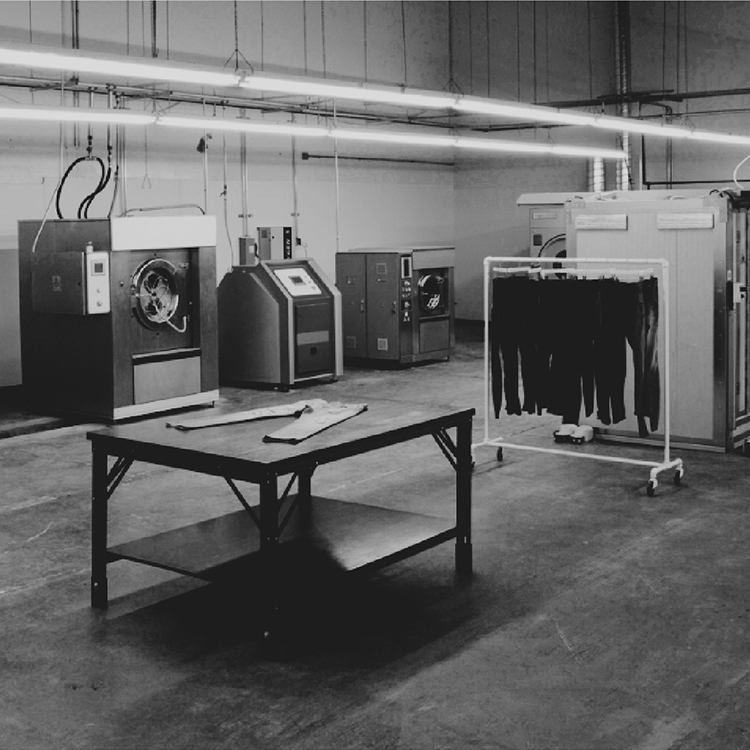
JEANS INNOVATION
At the JEANS INNOVATION CENTER in Los Angeles, California, UNIQLO is rethinking the way that jeans are made by updating the methods...
Read More
-
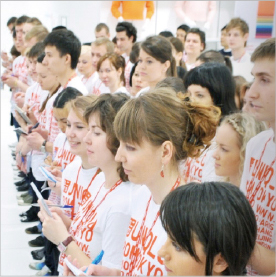
GENDER
All women should be able to pursue their dreams and forge a new tomorrow. We want to see women enjoy infinite possibilities. Believe in a world that enables wom...
Read More
-

PREPARING CLOTHES FOR AN EMERGENCY DISASTER
UNIQLO has aided disaster victims around the world over the past 20 years. It has learned in the process that few people prepare clothing kits for such emergencies...
Read More
Newest Contents
-

UNIQLO PRE-OWNED CLOTHES PROJECT
Once you’ve made the most of your clothes, it’s time to recycle. RE.UNIQLO is working towards a circular society by selling pre-owned clothes.....
Read More
-
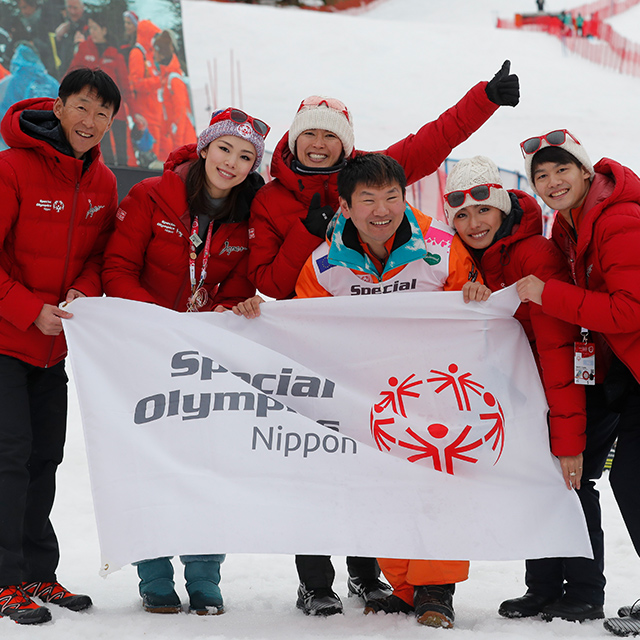
SPECIAL OLYMPICS
Special Olympics is an international organization that provides sports training and competition for people with intellectual disabilities...
Read More
-

JEANS INNOVATION
At the JEANS INNOVATION CENTER in Los Angeles, California, UNIQLO is rethinking the way that jeans are made by updating the methods...
Read More
-

THE SETOUCHI OLIVE FOUNDATION
The Setouchi Olive Foundation is a not-for-profit organization established by world-renowned architect Tadao Ando and Kohei Nakabo....
Read More


